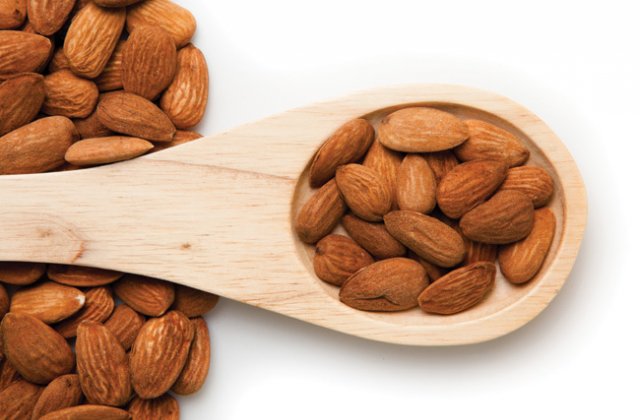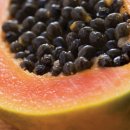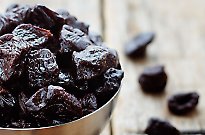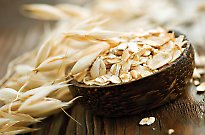
Almonds – a great source of vitamin E
Almonds – a great source of vitamin E

Health benefits of almonds
Nuts are an excellent source of monounsaturated fats, which help regulate cholesterol levels and prevent cholesterol absorption. They serve us well as a source of antioxidants, which retard the ageing process and protect against many diseases.
Almonds have gained their ‘superfood’ status rightfully: compared to other tree nuts, they rank first in protein, fibre, calcium, vitamin E, riboflavin and niacin. Plus, they deliver another startling property: even though a 30 gram serving has 160 calories, the body absorbs only 129 of those calories.
Improve your brain function with vitamin E
An ounce of almonds – or a handful of about two-dozen nuts – contains 35 per cent of the daily vitamin E requirement. Low levels of vitamin E are associated with age-related cognitive decline and poor memory performance – another reason to remember to eat an ounce of almonds a day.
A study published in the Journal of the American Medical Association determined that participants in the group consuming the most vitamin E from food sources, instead of supplements, had a 67 per cent lower risk of Alzheimer’s disease than those whose intake was lowest. Besides being good for your brain, almonds are good for your bones. They have more bone-strengthening calcium – 75 milligrams per 30 grams – than all other nuts.
Uniquely versatile, almonds are available in more forms than any other nut. They do not discolour, and they add texture, crunch and a distinctive flavour to any dish you make. But how to keep them at their best? Squirrels know by instinct what we humans had to learn: nuts stored in their shells and kept cool will stay fresh longer. The more unsaturated fat a nut contains, the quicker air and moisture can turn it rancid.
What to look out for
Look for nuts with intact, closed shells. Almonds are at their delicious best when just harvested, so buy the freshest available. Almonds that have been chopped, blanched or roasted, or those to which moisture has been added, have a shorter shelf life than almonds stored whole. And dry-roasted almonds last longer than those preserved in oil, such as chocolate-coated ones.
Store almonds in a tightly sealed jar and keep in a cool, dry spot out of the sun. Unshelled almonds will keep in the refrigerator for a year, or in the freezer for up to two years. With shells removed, almonds will last for four to five months in the refrigerator or for up to a year in the freezer.
NEXT: 5 reasons to get a good night's sleep!
Words: Barbara Bryant & Betsy Fentress; Photo credit: Robert Holmes















